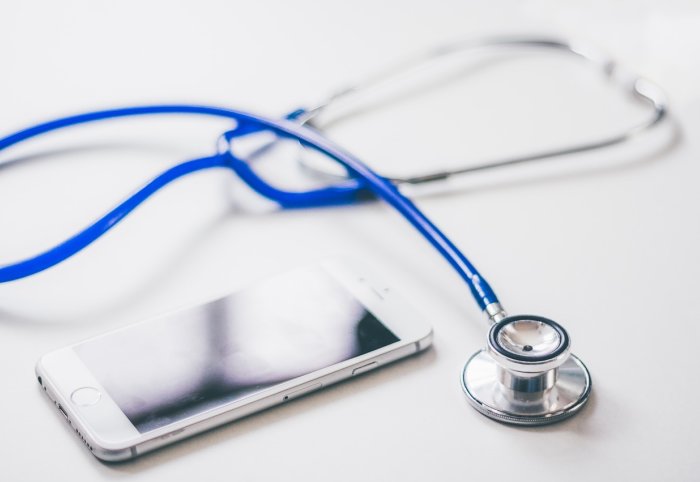Could a smartphone app make hospitals safer?

Mobile app for healthcare staff to be evaluated across NHS hospitals in new Imperial study.
Imperial researchers are embarking on a new project to test out whether a healthcare app can make hospitals safer.
Scientists from the College’s Institute of Global Health Innovation (IGHI) will begin evaluating whether the Streams app can help both patients and healthcare staff by making important medical information more readily available, leading to greater quality of care and more efficient workflow in hospitals.
"This app could revolutionise the working lives of healthcare professionals as well as improve patient outcomes, on a device already owned by 99% of medics." Prof Ara Darzi IGHI
As a ubiquitous technology owned by some 99% of doctors, smartphones are increasingly being recognised and exploited as a platform for innovation in health. As such, if this project proves successful, it could not only bring nationwide benefits to healthcare, but also serve as a model for the implementation of future innovations in health software.
“Digital technologies have the potential to offer scalable, cost-effective solutions to some of healthcare’s most pressing challenges, including how to minimise variability in quality of care,” said Professor the Lord Ara Darzi, project lead and director of the IGHI.
“Streams is just one example of how our Institute is progressing this rapidly-evolving field with cutting-edge, human-centred systems. If implemented successfully, this app could revolutionise the working lives of healthcare professionals as well as improve patient outcomes, on a device already owned by 99% of medics.”
Innovation in information
Each year, there are thousands of preventable deaths in English hospitals because a patients’ deteriorating condition wasn’t recognised and treated in time. Identifying these patients earlier and reducing errors in communication is vital to escalating and managing their care, yet many doctors still contend with outdated systems which have the unintended consequence of directing time away from patients.
DeepMind Health's Streams was designed as a solution to these issues. It’s a secure app that collates patients’ medical information so that it’s stored in one easy to access place, meaning healthcare professionals have the essential data they need at their fingertips. This could be anything from blood test results to vital signs such as heart rate, so that doctors can quickly spot issues should they arise. And if they do, the app can alert the right member of staff so they can rapidly respond.
Streams and its predecessor have already been trialled in small pilot studies and shown to elicit faster responses to messages than more traditional pager systems. Now the IGHI-led team has been awarded £145,000 from UK Research and Innovation as part of its Industrial Strategy Challenge Fund, to expand trialling of streams across multiple sites.
The team is partnering with clinical colleagues at Imperial College Healthcare NHS Trust, where the app will be introduced in a hospital environment as a tool for enhancing clinical delivery.
A sprint for success
The project will run throughout 2019 and will be rolled out across the five London hospitals comprising the Imperial College Healthcare NHS Trust, affecting more than 10,000 staff. As well as investigating the safety and feasibility of using a phone app in an NHS setting, the work will evaluate Streams’ impact on patients and professionals.
The researchers want to know whether the app can improve workflow by increasing efficiency and coordination among staff. This, in turn, could help reduce workload and stress, which will also be measured as part of the evaluation.
The study will also look at whether Streams can improve various measures of patient safety and care quality, such as rates of patient complications, deaths and length of stay.
The research is one of ten funded ‘Sprint Exemplar Innovation Projects’, which will inform and shape a UK-wide secure data network called the Digital Innovation Hub Programme. Led by Health Data Research UK (HDR UK), this framework will mean that health data is used in a safe and responsible manner by researchers and innovators, in a way that ultimately brings benefits to patients and the public.
This is the first time that IGHI has been awarded a grant from HDR UK, which is a share of a £3 million pot of Government funding that aims to show the potential of data to improve healthcare.
“This is a prime example of the high-calibre translational research carried out at IGHI,” said Professor Nick Jennings, the College’s Vice-Provost for Research and Enterprise.
“It’s very encouraging to see that a product developed at the Institute is now being implemented to help improve the lives of both patients and professionals. We look forward to seeing how this research progresses further and the far-reaching impact that a simple app could have.”
Article text (excluding photos or graphics) © Imperial College London.
Photos and graphics subject to third party copyright used with permission or © Imperial College London.
Reporter
Justine Alford
Institute of Global Health Innovation